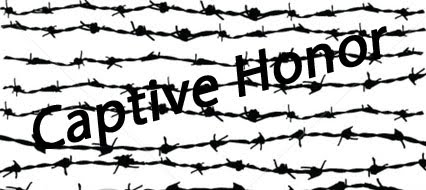

William D. Port (October 13, or October 31, 1941 – November 27, 1968) was a United States Army soldier and a recipient of the United States military's highest decoration—the Medal of Honor—for his actions in the Vietnam War.
Port joined the Army from Harrisburg, Pennsylvania, and by January 12, 1968 was serving as a private first class in Company C, 5th Battalion, 7th Cavalry Regiment, 1st Air Cavalry Division. During a firefight on that day, in the Que Son Valley, Quang Tin Province [2], Republic of Vietnam, rescued a wounded comrade and then smothered the blast of an enemy-thrown grenade with his body to protect other soldiers. Port survived the blast, but was seriously wounded and captured by the enemy. He died while a prisoner of war ten months later. Port was promoted to Sergeant and posthumously awarded the Medal of Honor for his actions during the battle.
Port, aged 27 at his death, was buried in Arlington National Cemetery, Arlington County, Virginia. In Huntingdon, Pennsylvania there is a bridge across the Juniata River named after William Port. A plaque describes his heroism.
Quote from: Steve Loving "Bill was drafted at a much older age than most of us kids - we were mostly 18 or 19 and even the officers were in their early 20's. Bill was in his late 20's. While most of us always seemed to have something to gripe about, I can never recall Bill saying anything negative. He was a quiet, private guy and he led his life that way—with quiet dignity. That dreadful day in January is a day that our platoon will never forget, and many of us are able to celebrate life because of Bill's sacrifice. He will never be forgotten by any of us who served with him."
Rank and organization: Sergeant (then Pfc.), U.S. Army, Company C, 5th Battalion, 7th Cavalry, 1st Air Cavalry Division. Place and date: Que Son Valley, Heip Duc Province, Republic of Vietnam, January 12, 1968. Entered service at: Harrisburg, Pa. Born: October 13, 1941, Petersburg, Pa.
Most people don't realize it, but he was left for dead on the battlefield, and taken prisoner by North Vietnamese and kept in a junglee POW camp run by the Viet Cong. Port died from starvation and non-treatment of his wounds by his Vietnamese captors.
I did not know William Port personally, only through my POW research on T15 camp where he died, and email correspondence with POWs Frank Anton and Dr. Hal Kushner, who were with Bill until he died.
I have the MOH paperwork and supporting eyewitness statements from Port's fellow soldiers to use as a basis for for starting research for an article in Vietnam magazine. I am looking to hear from anyone who knew Bill from childhood and Army service, especially the men who were involved in the MOH incident.
Medal of Honor Citation:
For conspicuous gallantry and intrepidity at the risk of his life above and beyond the call of duty. Sgt. Port distinguished himself while serving as a rifleman with Company C, which was conducting combat operations against an enemy force in the Que Son Valley. As Sgt. Port's platoon was moving to cut off a reported movement of enemy soldiers, the platoon came under heavy fire from an entrenched enemy force. The platoon was forced to withdraw due to the intensity and ferocity of the fire. Although wounded in the hand as the withdrawal began, Sgt. Port, with complete disregard for his safety, ran through the heavy fire to assist a wounded comrade back to the safety of the platoon perimeter. As the enemy forces assaulted in the perimeter, Sgt. Port and 3 comrades were in position behind an embankment when an enemy grenade landed in their midst. Sgt. Port, realizing the danger to his fellow soldiers, shouted the warning, "Grenade," and unhesitatingly hurled himself towards the grenade to shield his comrades from the explosion. Through his exemplary courage and devotion he saved the lives of his fellow soldiers and gave the members of his platoon the inspiration needed to hold their position. Sgt. Port's selfless concern for his comrades, at the risk of his life above and beyond the call of duty are in keeping with the highest tradition of the military service and reflect great credit on himself, his unit, and the U.S. Army.


No comments:
Post a Comment